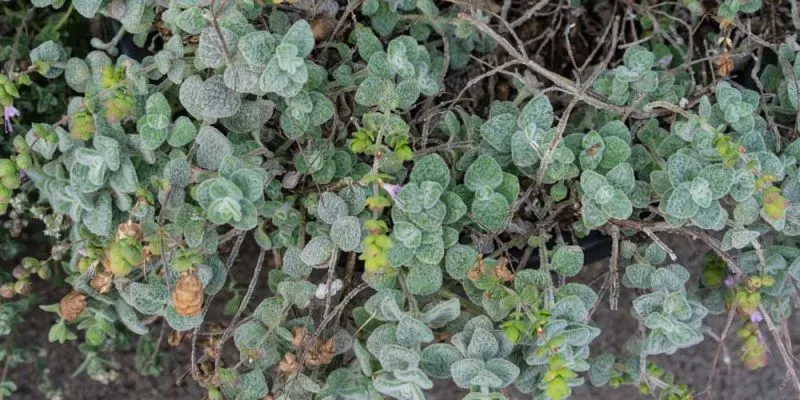There isn’t a single herb that thrives in Crete without possessing beneficial properties for human health—many of which have been recognized since ancient times when they were widely used as medicine.
The herb we’re discussing in this article was once a staple in Hippocrates’ medicinal repertoire. He used it to treat stomach and digestive disorders, rheumatism, arthritis, as a healing agent, an emmenagogue (to stimulate menstruation), a tonic, and an antispasmodic. In essence, it was a natural remedy for pain relief.
The ancient Roman poet Virgil even mentions it in the Aeneid: when Aeneas, the son of Aphrodite, was wounded during the Trojan War, Aphrodite rushed to Crete to gather dittany from Mount Psiloritis to heal his wounds.
Dittany (Origanum dictamnus)—also known as diktamo or erontas—is a herb whose leaves are consumed as an herbal tea. It is an endemic plant found only in Crete. Its name originates from Mount Dikti (in the Lasithi region), where it once grew in abundance. Today, it can be found in the wild across all the island’s mountain ranges.
With a spicy taste reminiscent of mint and oregano, dittany is generally safe when consumed in moderation. However, excessive use may lead to gastrointestinal issues or allergic reactions.
Rich in antioxidants, dittany helps boost the body’s defenses, promoting overall health by fighting free radicals that cause cellular damage.
Furthermore, as previously mentioned, it alleviates pain and combats inflammation in the stomach and intestines. It aids digestion, stimulates healthy gut function, and helps relieve constipation.
Finally, dittany is known to combat insomnia, headaches, and colds while also enhancing libido.


